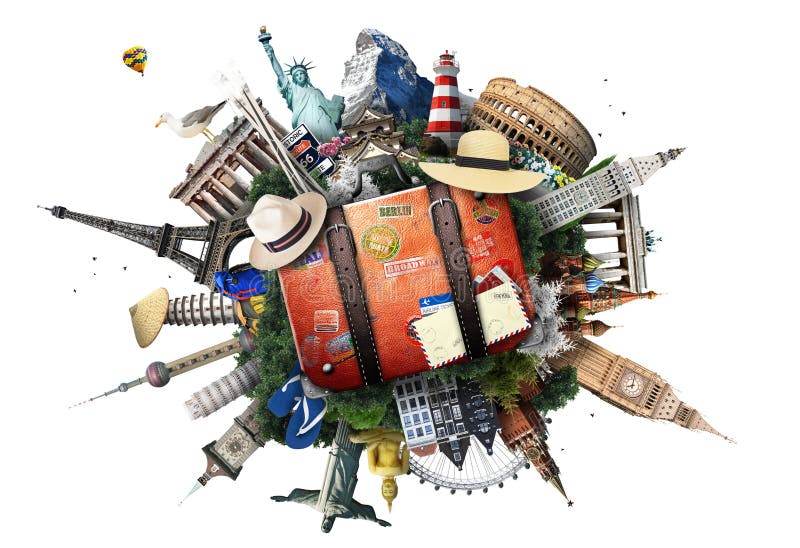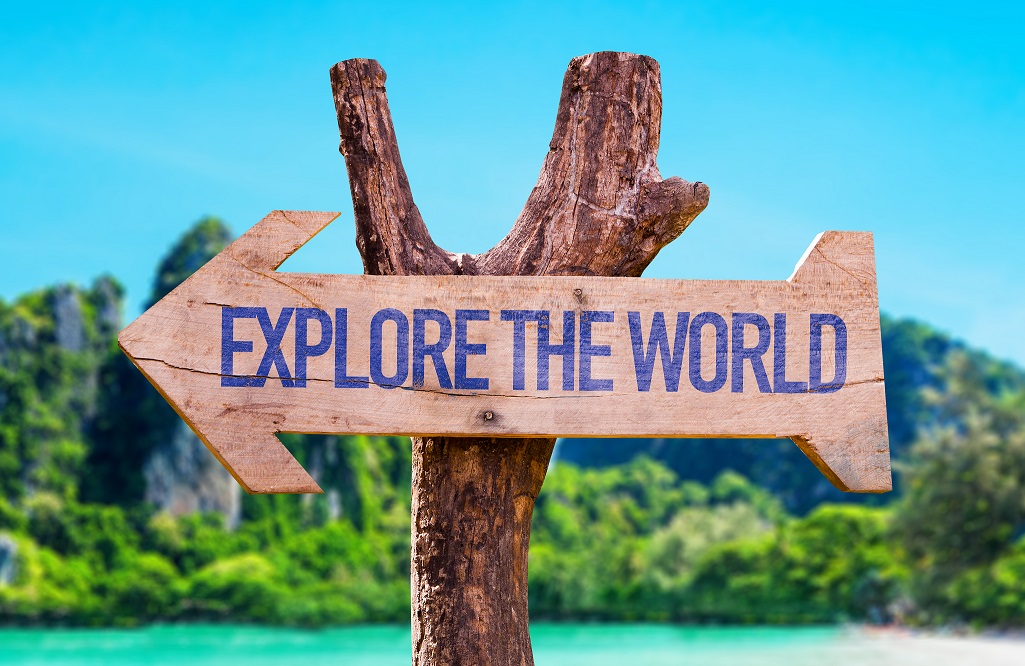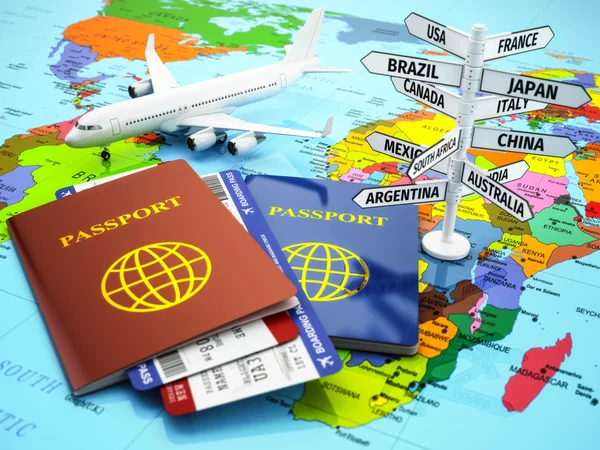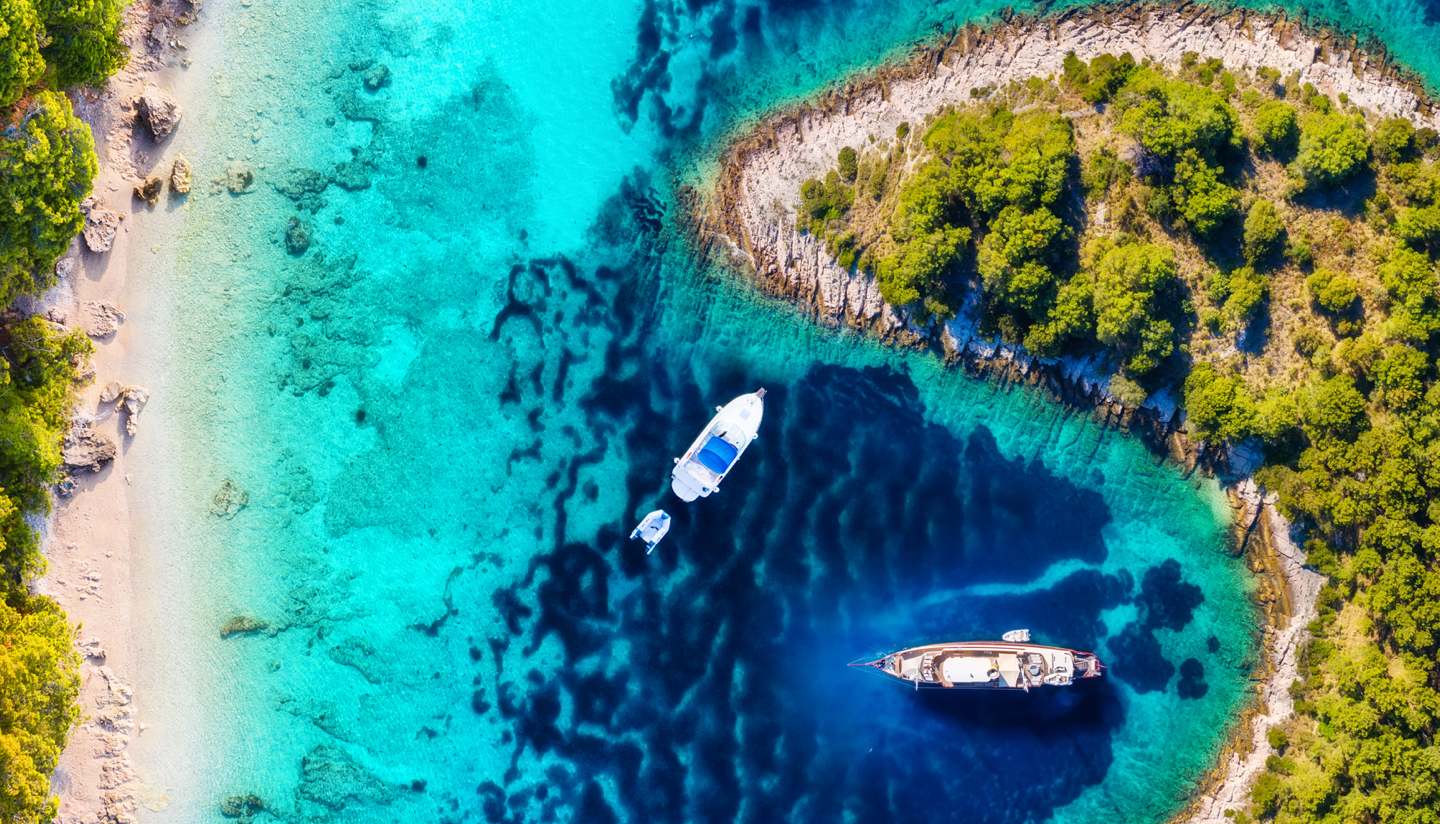




Tourism
Tourism is travel for pleasure or business; also the theory and practice of touring, the business of attracting, accommodating, and entertaining tourists, and the business of operating tours. The World Tourism Organization defines tourism more generally, in terms which go "beyond the common perception of tourism as being limited to holiday activity only", as people "traveling to and staying in places outside their usual environment for not more than one consecutive year for leisure and not less than 24 hours, business and other purposes". Tourism can be domestic (within the traveller's own country) or international, and international tourism has both incoming and outgoing implications on a country's balance of payments.

Tourism products
According to the World Tourism Organization, a tourism product is: "a combination of tangible and intangible elements, such as natural, cultural and man-made resources, attractions, facilities, services and activities around a specific center of interest which represents the core of the destination marketing mix and creates an overall visitor experience including emotional aspects for the potential customers. A tourism product is priced and sold through distribution channels and it has a life-cycle".
International tourism
International tourism is tourism that crosses national borders. Globalisation has made tourism a popular global leisure activity. The World Tourism Organization defines tourists as people "traveling to and staying in places outside their usual environment for not more than one consecutive year for leisure, business and other purposes". The World Health Organization (WHO) estimates that up to 500,000 people are in flight at any one time
History
Travel outside a person's local area for leisure was largely confined to wealthy classes, who at times travelled to distant parts of the world, to see great buildings and works of art, learn new languages, experience new cultures, enjoy pristine nature and to taste different cuisines.
Middle Ages
By the Middle Ages, Christianity and Buddhism and Islam had traditions of pilgrimage. Chaucer's Canterbury Tales and Wu Cheng'en's Journey to the West remain classics of English and Chinese literature.
Grand Tour
Modern tourism can be traced to what was known as the Grand Tour, which was a traditional trip around Europe (especially Germany and Italy), undertaken by mainly upper-class European young men of means, mainly from Western and Northern European countries. In 1624, the young Prince of Poland, Ladislaus Sigismund Vasa, the eldest son of Sigismund III, embarked on a journey across Europe, as was in custom among Polish nobility.
Emergence of leisure travel
Leisure travel was associated with the Industrial Revolution in the United Kingdom – the first European country to promote leisure time to the increasing industrial population. Initially, this applied to the owners of the machinery of production, the economic oligarchy, factory owners and traders.
Tourism product covers a wide variety of services including:
- Accommodation services from low cost homestays to five star hotels
- Hospitality services including food and beverage serving centers
- Health care services like massage
- All modes of transport, its booking and rental
- Travel agencies, guided tours and tourist guides
- Cultural services such as religious monuments, museums, and historical places
- Shopping
Niche tourism
Niche tourism refers to the numerous specialty forms of tourism that have emerged over the years, each with its own adjective. Many of these terms have come into common use by the tourism industry and academics. Others are emerging concepts that may or may not gain popular usage. Examples of the more common niche tourism markets are:
- Agritourism
- Birth tourism
- Culinary tourism
- Cultural tourism
- Dark tourism (also called "black tourism" or "grief tourism")
- Eco tourism
- Extreme tourism
- Geotourism
- Heritage tourism
- LGBT tourism
- Medical tourism